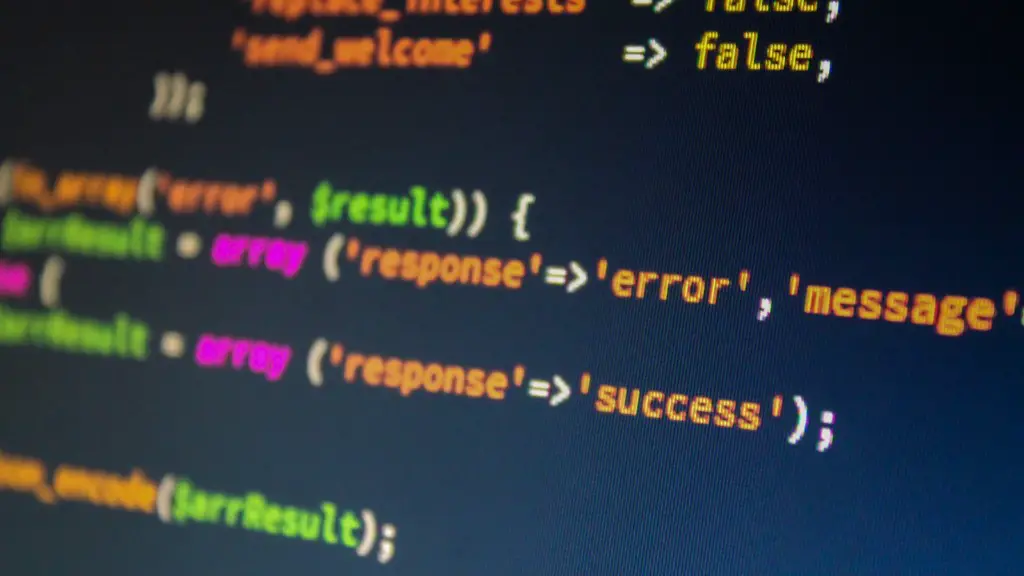The Central Intelligence Agency, or the CIA, is in charge of the clandestine operations of the United States. Becoming a CIA operative requires hard work, fantastic intelligence and impressive qualifications. After all, CIA operatives are the best of the best when it comes to intelligence activities.They are also highly trained in both combat and intelligence. Therefore, if you are looking to break into the world of CIA operatives, this article is for you.
h2>Background Information
Ahead of applying for a job a CIA, you should understand the fundamental responsibilities of a CIA operative. A CIA operative is responsible for the nation’s security and protecting it from cyber attacks and terrorist activity. Therefore, they are expected to collect and analyze prominent and secret information regarding both foreign and domestic threats. Additionally, they are also responsible for investigation and intelligence operations overseas.
Aside from these core responsibilities, CIA operatives are trained in tactical operations, combat and defensive strategies. They are expected to stay up-to-date on the latest technological advancements and political news in order to provide insights into the nation’s security. Beyond these roles, they may also have responsibilities in training other agents and gathering evidence from undercover operations. In short, CIA operatives have their hands full.
Education and Experience
In addition to completing basic qualifications, a potential CIA operative must have a bachelor’s degree in a relevant field such as international relations, political science, public diplomacy, computer science or economics. Preference is given to individuals with advanced degrees in international affairs, English, security studies or similar.
Apart from formal education,CIA operatives need to have prior experience working in a related field. Depending on the position they are applying for, they may be expected to produce proof of their work experience. Employment with the CIA can involve working in stressful environments where they need to remain composed and accurate. In addition, job seekers should be proficient in foreign languages.
Screening and Training
In order to be eligible for employment a potential CIA operative has to pass a stringent background check process. This entails submitting copies of birth and passport certificates, travel documents, identification photographs and detailed personal biographies to verify background information.
After passing the background check process, personnel recruiters conduct an assessment and if they are found fit, they are enlisted in an intensive two-year training program. This program involves theoretical and hands-on training in operational security and safety, weaponry, cryptographic systems and other activities. After successfully completing the training program, a CIA operative can apply for levels of promotion in the agency.
Securing Employment
Acquiring a job as a CIA operative primarily involves knowing the right people. CIA applicants are more likely to secure employment if they have contacts within the agency and they should create meaningful network opportunities to secure a position at the CIA. In addition to networking, individuals can try formal routes such as applying for jobs on websites such as AmeriCorps or through military and government placement agencies.
However, it is important to understand that applying for a job in the CIA should involve serious commitment. This involves taking personal risk and having a solid understanding of the nation’s security dynamics. Job seekers must also realize that their employees will have to take an oath of secrecy and agree to sign a non-disclosure agreement with their employer.
Mode of Operation
The CIA’s mode of operations is mainly divided into three distinct activities. These activities include clandestine intelligence collection, direct action and support to other intelligence entities. The agency typically focuses on data pertaining to foreign nations, particularly those deemed hostile to the US, in order to locate and prevent threats. CIA operatives may be sent to foreign countries to conduct covert operations and can employ a variety of tactics to gain intelligence information.
Clandestine intelligence collection is the practice of gathering and processing secret information. This involves employing various tactics such as surveillance, infiltration, bribery and information acquisition. In addition, operatives are expected to engage in a variety of defensive and offensive tactics to ensure the safety of the US. Direct action involves employing military tactics such as special operations, assassination and sabotage.
Finally, the CIA also engages in support to other intelligence entities. This entails providing data and resources to federal intelligence and law enforcement agencies, in addition to private security firms. Agencies supported by the CIA conduct operations to locate and apprehend criminals, capture information about terrorist activities, monitor foreign government operations and investigate anomalies in foreign nations.
Risk and Dangers
CIA operatives operate in hazardous and dangerous environments multiple times. This includes undercover operations in hostile environments such as war zones, dealing with narcotics traffickers and attempting to infiltrate terrorist groups. As a result, operatives need to remain vigilant and adhere to protocol while carrying out operations to be able to identify and block potential threats.
CIA operatives are also the targets of enemy counterintelligence personnel. To reduce the risk of being compromised, operatives must practice discretion and adhere to safety protocols during their operations. In addition, they rely on various technologies such as encrypted messaging and other communication systems to communicate effectively.
CIA operatives are also exposed to physical danger during their operations; including weapons handling, accident or injury. To protect themselves from potential harm, operatives must have a thorough understanding of protective gear and weapons. Additionally, personnel are expected to have excellent instinct and foresight to identify and evade threats quickly.
Advancements in Technology and Equipment
CIA operatives utilize specialized equipment to aid in the execution of their operations. This includes sophisticated surveillance devices, communications gear and other gadgets suitable for the agency’s operations. Additionally, the agency also employs biometric authentication technology to verify the identity of personnel, limit access to confidential information and secure entry points.
In addition to utilizing appropriate technology, the CIA has invested in simulation technologies to train its operatives in intelligence operations. Simulators recreate real-life environments and provide operatives with a safe means to practice their skills in a controlled environment. This includes live-fire ranges and other simulation software that allow operatives to rehearse missions and drills.
Finally, the CIA makes use of open source intelligence, which refers to the collection of data from public sources. This includes collecting data from news websites and other public sources, to uncover valuable details about potential security threats. Operatives can use this data to gain insights into pending threats and enhance the agency’s capabilities.
Conclusion
The Central Intelligence Agency, most commonly known as the CIA is a prestigious employment opportunities for those interested in serving their nation in the best possible way. Working as a CIA operative is not only a prestigious job, it’s a demanding one as well. It requires unyielding commitment, intelligence and a sharp eye. Those who are serious about seeking a career in the CIA need to be aware of their responsibilities, the necessary qualifications and the latest technologies employed by the agency.





